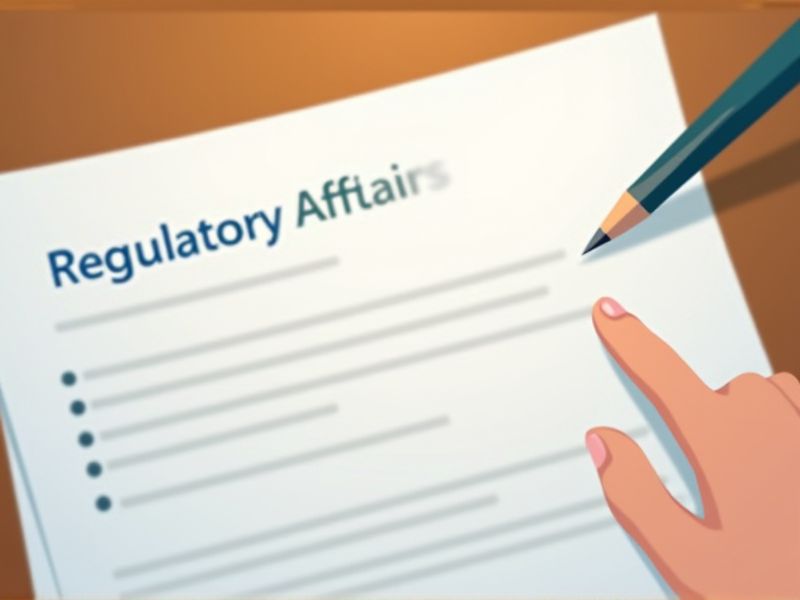
Regulatory Affairs Specialists navigate complex legal and compliance landscapes, ensuring products meet industry standards. Certifications provide them with the necessary knowledge and credibility to interpret global regulatory guidelines effectively. These credentials also enhance a specialist's ability to manage documentation and facilitate communication between stakeholders and regulatory agencies. Key certifications essential for a Regulatory Affairs Specialist include those recognized for competency in regulatory-related tasks.
Regulatory Affairs Certification (RAC)
The Regulatory Affairs Certification (RAC) equips specialists with recognized expertise, enhancing their credibility and career prospects in the highly regulated industries. Employers often value RAC because it signifies proficiency in navigating complex regulatory requirements and standards. Possessing an RAC can lead to more effective communication with regulatory bodies, facilitating smoother approvals for products. The formal accreditation associated with RAC ensures specialists are up-to-date with current practices, which is crucial in maintaining compliance and avoiding legal pitfalls.
Good Clinical Practice (GCP) Certification
A GCP Certification ensures that Regulatory Affairs Specialists understand and adhere to ethical and scientific quality standards in clinical trials, which is crucial for participant safety and data integrity. This certification equips specialists with the necessary skills to effectively navigate and ensure compliance with international regulations, minimizing the risk of regulatory issues. In the regulatory landscape, a strong grasp of GCP principles enhances communication and collaboration with clinical research teams, facilitating efficient trial management and oversight. Knowledge from GCP Certification helps specialists advocate for and implement best practices in clinical trial processes, supporting successful application and approval outcomes.
ISO 13485 Lead Auditor Certification
The ISO 13485 Lead Auditor Certification equips a Regulatory Affairs Specialist with the necessary skills to assess and ensure compliance with international medical device regulations. It enhances their capability to conduct thorough audits, which is crucial for maintaining high-quality standards and meeting regulatory requirements. Having this certification demonstrates their expertise in quality management systems, increasing organizational confidence in their ability to handle audits and inspections. It further aids in identifying potential non-compliances and implementing corrective actions, thus minimizing risks associated with regulatory issues.
Medical Device Single Audit Program (MDSAP) Training
Regulatory Affairs Specialists require MDSAP training to effectively navigate the compliance landscape of multiple international regulatory bodies. This training ensures they can manage audits that simultaneously assess compliance with standards from participating countries, such as the United States, Canada, and Brazil. A robust understanding of MDSAP allows specialists to streamline device approval processes, minimizing delays caused by complex regulatory requirements. Improved knowledge of MDSAP ultimately reduces the risk of non-compliance, thereby safeguarding public health and enhancing company credibility.
Certified Quality Auditor (CQA)
Employing a Certified Quality Auditor (CQA) ensures that a Regulatory Affairs Specialist maintains compliance with industry standards, reducing the risk of regulatory penalties. A CQA's expertise in auditing processes identifies gaps in quality systems, leading to improved regulatory submissions and product approvals. Their skills in quality management enhance the specialist's ability to oversee regulatory documentation effectively, aligning operations with legal requirements. The CQA's proficiency in corrective actions facilitates timely issue resolution, minimizing the chances of product recalls and fostering consumer trust.
Certified Quality Engineer (CQE)
Having a Certified Quality Engineer (CQE) enhances a Regulatory Affairs Specialist's understanding of quality management principles, which is crucial for complying with international regulations. Knowledge of quality engineering helps in developing robust systems that ensure product consistency and safety, meeting regulatory standards. A CQE can identify potential quality issues early, reducing the risk of costly compliance violations. Their expertise supports creating comprehensive documentation, essential for successful regulatory submissions and audits.
Project Management Professional (PMP)
Regulatory Affairs Specialists often navigate complex rules and regulations, and PMP certification enhances their ability to manage these intricate projects efficiently. The structured approach offered by PMP cultivates vital skills such as risk management and resource allocation, crucial in regulatory processes. Enhanced communication and leadership skills developed through PMP help maintain proper coordination among cross-functional teams. This leads to improved compliance and timely approval of products in tightly regulated industries.
Certified Manager of Quality/Organizational Excellence (CMQ/OE)
A Regulatory Affairs Specialist often deals with compliance, quality assurance, and process improvement, where the CMQ/OE certification provides essential skills. The certification enhances a specialist's ability to effectively manage projects and teams, critical for ensuring products adhere to regulatory standards. Certified knowledge in quality management can lead to more efficient processes and cost savings, benefiting the company and its compliance efforts. Obtaining the CMQ/OE certification demonstrates a commitment to professional development and organizational excellence, which can be advantageous in advancing a career in regulatory affairs.
Clinical Research Professional (CRP) Certification
Obtaining a Clinical Research Professional (CRP) Certification enhances a Regulatory Affairs Specialist's credibility by demonstrating a comprehensive understanding of clinical trial processes. This certification equips specialists with the skills needed to navigate complex regulatory requirements, thereby facilitating smoother and faster approval processes for new drugs and medical devices. CRP Certification provides access to a network of professionals and resources, fostering continuous professional development and collaboration. In a competitive job market, possessing this certification can distinguish a specialist by showcasing dedication to the highest standards of regulatory expertise.
International Conference on Harmonisation (ICH) Compliance Certification
International Conference on Harmonisation (ICH) Compliance Certification ensures a Regulatory Affairs Specialist understands standardized guidelines essential for quality, safety, and efficacy in pharmaceuticals. Achieving this certification results in enhanced credibility and reliability for professionals working within global markets. It facilitates smoother regulatory approvals and reduces the likelihood of submission delays or rejections. Certification leads to improved communication with international regulatory bodies, aiding in the successful global distribution of products.
Summary
When you, as a Regulatory Affairs Specialist, earn certifications, your professional credibility and marketability significantly increase. Employers often recognize certified professionals as more competent, leading to enhanced job prospects and potential salary growth. Earning certifications can also provide you with up-to-date knowledge on regulations and compliance, improving job performance. Such credentials foster trust with stakeholders, giving you a competitive edge in strategic decision-making.
